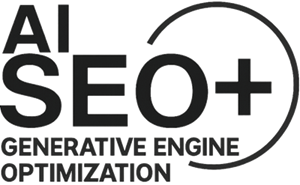The Rise of AI in Digital Marketing, How Artificial Intelligence is Redefining Customer Engagement, Efficiency, and Strategy

In this blog, we’ll explore how AI is reshaping digital marketing across all channels — SEO, advertising, social media, email, and analytics — and why embracing this shift is critical for long-term business success. By understanding AI’s current and emerging capabilities, you’ll be better equipped to make informed, future-proof decisions in your marketing strategy.
Understanding the Impact of AI on Modern Digital Marketing: From Campaign Optimization to Predictive Personalization
AI isn’t just improving digital marketing — it’s fundamentally redefining how brands connect with consumers. Traditionally, marketing has relied on human decision-making, manual campaign tweaks, and retrospective data analysis. But AI introduces a powerful paradigm shift: one where machines not only process massive amounts of data in real time, but also make predictions, automate actions, and personalize experiences based on user behavior and intent.
With AI, marketers can now:
- Automatically generate blog content, ad copy, and social posts using tools like ChatGPT, Jasper, and Writesonic.
- Predict future customer actions using machine learning models trained on historical data.
- Personalize every user’s website journey — from product suggestions to messaging — without lifting a finger.
- Enhance ROI through AI-driven ad targeting and bidding strategies that optimize performance based on real-time signals.
Simply put, AI isn’t a tool — it’s becoming the foundation of modern marketing infrastructure. As it continues to evolve, it will empower brands to deliver deeper engagement, smarter campaigns, and faster results at scale.
Key Areas Where AI is Transforming Digital Marketing
1. AI in Content Generation and Copywriting
AI tools like ChatGPT, Jasper, and Copy.ai are revolutionizing content marketing. They help marketers write blog posts, headlines, emails, product descriptions, and even video scripts in minutes. This doesn’t replace human creativity — instead, it accelerates brainstorming, speeds up production, and ensures content remains consistent and SEO-optimized.
2. AI-Powered Chatbots for Real-Time Engagement
Customer support is one of the most powerful use cases of AI in digital marketing. Chatbots, powered by natural language processing (NLP), provide 24/7 assistance, answer queries instantly, guide users through the buying journey, and collect valuable data — all without human intervention.
3. Predictive Analytics for Smarter Campaigns
AI can analyze customer behavior, historical data, and engagement patterns to predict future actions. This helps marketers make proactive decisions, such as identifying churn risks, optimizing email timing, or recommending the best-performing content based on audience segments.
4. Personalized User Experiences at Scale
AI enables hyper-personalization by dynamically altering website content, email messages, or ad creatives for individual users. By using behavioral and contextual data, brands can show the right product, message, or CTA to the right person at the right time — increasing engagement and conversions.
5. AI in Social Media Listening and Automation
AI tools like Sprout Social, Brand24, and Hootsuite Insights allow marketers to track sentiment, trends, and competitor activity across social platforms. AI can also schedule posts, analyze content performance, and identify the best times for engagement, all while reducing manual effort.
6. AI-Driven SEO and Search Optimization
SEO is no longer just about keywords. AI tools like Surfer SEO, Clearscope, and MarketMuse use natural language understanding (NLU) to recommend relevant topics, internal linking strategies, and content structures. AI also helps identify ranking opportunities and improves content readability and topical authority.
7. Enhanced Advertising with AI Automation
Platforms like Google Ads and Meta Ads now use AI for dynamic bidding, targeting, and creative testing. AI automatically adjusts bids based on user intent, device, time of day, and past behavior — all to maximize ROI. Ad copy and visuals are also A/B tested automatically to find the highest performers.
The Benefits of Embracing AI in Your Digital Marketing Strategy
- Efficiency: AI can automate time-consuming tasks, freeing your team to focus on strategy and creativity.
- Personalization: With AI, your campaigns adapt to each user, creating more meaningful and relevant interactions.
- Scalability: AI makes it easier to scale campaigns across multiple platforms and audience segments simultaneously.
- Better ROI: Smart targeting and real-time optimization lead to higher conversion rates and better use of ad spend.
Challenges to Consider When Using AI in Marketing
While the advantages of AI are massive, it’s important to be aware of potential challenges:
- Data Quality: AI is only as good as the data it’s trained on. Inaccurate or biased data can lead to flawed results.
- Lack of Human Touch: Over-automation can make interactions feel robotic. Human oversight remains essential for empathy and emotional nuance.
- Privacy Concerns: Using AI to process user data requires strict adherence to data privacy laws (like GDPR and CCPA).
- Initial Learning Curve: Implementing AI tools effectively may require training and process restructuring.
Future Outlook: What’s Next for AI in Digital Marketing?
The pace of AI innovation is accelerating. In the next few years, we can expect:
- Greater integration of AI in AR/VR environments for immersive marketing experiences.
- Emotion AI that detects mood and sentiment to tailor communication in real-time.
- Voice and visual search optimization becoming a mainstream marketing discipline.
- End-to-end AI marketing stacks that handle strategy, execution, and optimization autonomously.
Marketers who learn to collaborate with AI — rather than fear it — will become more effective, agile, and future-ready. The key is to start small, test often, and constantly optimize.
Conclusion: AI is the Present and Future of Digital Marketing
AI isn’t just a trend — it’s a transformational force in the world of digital marketing. From smarter data analysis to fully personalized user journeys, AI empowers marketers to do more, faster, and with greater accuracy. Whether you’re focused on SEO, email marketing, social media, or paid ads, integrating AI can give your campaigns a major edge in today’s hyper-competitive landscape.
Now is the time to adapt, innovate, and embrace AI as a strategic partner in your digital growth journey.
